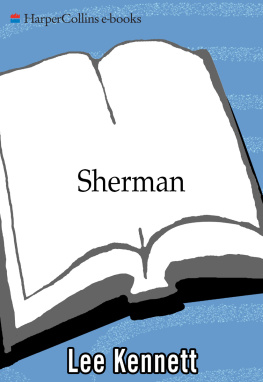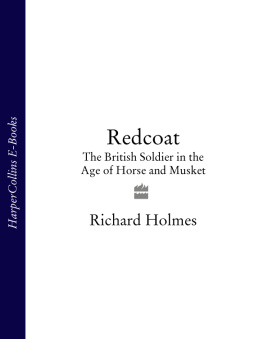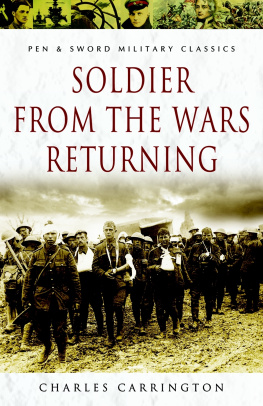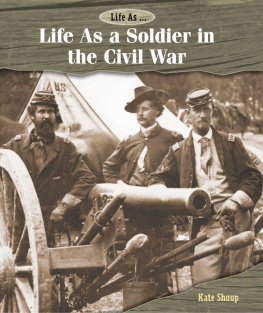PREFACE
T his is the story of a man born six or seven hundred years too late. Chatham Roberdeau Wheat would have been more at home in the age when knighthood was in flower than in the mid-nineteenth century. He was a dreamer whose dreams never came true until the last fateful one. He was an idealist whose idealism did not exclude an unquenchable thirst for gold and glory.
Wheats story is that of a man who learned to play soldier late in youth and thereafter was never able to shake off the fascination that battle held for him. He hitched his life to a Latin motto
Non per sylvas, sed per castra
Nobis iter est ad astra
which he freely translated
Through rural quiet doth thy pathway lead,
Undying conflicts bear me to the sky.
Virginia-born and Tennessee-bred, Wheat led an adventurous life which admirably demonstrated that a born leader of men, even though he be a gentleman among rogues, can command the wildest of soldiers. This he did on foreign shores for almost half his life, but when the Civil War broke over the land he hurried back from the camp of Garibaldi to offer his sword to the Confederacy. In 1861, he went forth eagerly at the head of the Louisiana Tigers to win a heros grave at thirty-six on the bloody field of Gainess Mill.
... Ere his end, wrote Douglas Southall Freeman of Wheat, he shares in three of the most dramatic scenes of the drama.
Dr. Freeman, in his monumental Lees Lieutenants gives the best sketch of Roberdeau Wheats life, but no full-length biography of this fantastic young soldier of fortune has been published.
Without the sympathetic assistance of Mrs. Burton Craige and Mrs. Chatham Roberdeau Wheat, Jr., both of Winston-Salem, North Carolina, this book could not have been written. Mrs. Craige, Wheats grandniece, made available, and Mrs. Wheat, wife of Wheats nephew, organized a collection of Wheats letters, family papers and pictures which the author had in his possession for months. Gratitude is hereby expressed to them and to other Wheat relatives, especially Chatham Roberdeau Wheat III of Devon, Pennsylvania; Mrs. Harold Ello and James Keith, both of New Orleans; J. C. Wheat, Jr., of Richmond, and Mrs. William Elam of Greenville, Mississippi.
It is impossible to name everyone from whom the author has received help, but he would be grossly unappreciative if he did not specify Joseph Abraham of New Orleans; Mrs. Eleanor Ashby Bancroft of the Bancroft Library, University of California; William M. Boothe of Episcopal High School, Alexandria, Virginia; Vergil Bedsole, Director of Archives at Louisiana State University, and his research assistant, Mrs. Marcelle F. Schertz; Josiah Collins, Seattle, Washington; Mrs. R. B. Critz, Manteo, Virginia; Miss Betty Cocke, Charlottesville, Virginia; Arthur Ben Chitty, Sewanee, Tennessee; Arthur L. Crabb of Peabody College in Nashville, Tennessee; Ralph W. Donnelly, Washington, D. C.; Harbart Davenport, Brownsville, Texas; Miss Llerena Friend, Barker Texas History Center, University of Texas; Stanley F. Horn, Nashville, Tennessee; Mrs. Telfair Hodgson, Sewanee, Tennessee; Congressman F. Edward Hebert of Louisiana; Holman Hamilton, University of Kentucky; Major J. H. Mills of Manassas, Virginia; Rex B. Magee, Washington, D. C; Fred Russell, Nashville, Tennessee; Miss Margaret Ruckert, archivist, New Orleans Public Library; Dr. Garland F. Taylor, Director of Libraries at Tulane University, and his excellent staff; Mrs. Carolyn A. Wallace of the Southern Historical Collection, University of North Carolina; Mrs. George A. Washington of New Orleans; Francis Wilshin, National Park Superintendent at the Manassas battlefield; Lee Wallace, National Park Historian, formerly stationed at Petersburg, Virginia, who, with Jim Holland, National Park Regional Historian, helped the author to understand the Gainess Mill battlefield; Richard G. Woods, formerly of War Records Branch, National Archives, and his staff, especially E. O. Parker and Miss Mabel Deutrich; and Mrs. Gertrude Morton Parsley of the Tennessee State Library and Archives, Nashville, Tennessee. Special thanks are due Douglass V. Freret and Jack Freret for the excellent maps throughout the text; to Thomas Harrison and Kenneth Urquhart for making their knowledge of Louisiana Confederate units available; and to Mrs. Dorothy Lawton of Tulane Universitys Howard-Tilton Library for assistance in preparing the bibliography.
To John Hall Jacobs and his wife Frances the author is deeply indebted for making the index and similar obligation is acknowledged to Miss Polly LeBeuf for meticulously typing the manuscript in all stages of its development. Thanks are due Crozet Duplantier for reading the manuscript for typographical and other errors and for his excellent suggestions.
Two distinguished students and writers on the Civil WarClifford Dowdey and Bell I. Wileyread the manuscript in its first draft and made valuable suggestions for its revision. A third Civil War scholar and biographer, John P. Dyer, read the final draft and made several vital suggestions for revision. To all three the author is grateful for their friendly criticism and he hereby absolves them of any responsibilities for whatever inadequacies remain.
C. L. D.










